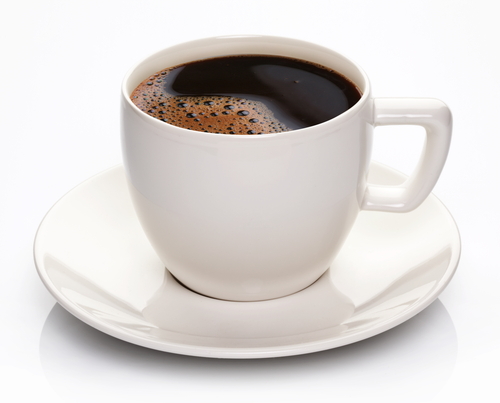Are you one of those people who can’t hold down your end of a conversation in the morning until you’ve had your first cup of coffee? Does just the smell of coffee put a smile on your face? If so, you’re definitely not alone. According to a recent National Coffee Association study, 64% of Americans drink coffee and 79% of those respondents said they had drunk coffee within the past day.
For many of us, we don’t necessarily become addicted to the coffee itself but to the caffeine within it. The same can be said for tea and sodas. While they all taste good, what we really get hooked on is the caffeine.
But is caffeine good or bad for our health? We’ll get to that answer in a moment. But first, let’s look at what caffeine actually is.
What is Caffeine?
Caffeine is a natural stimulant that is commonly found in coffee, tea, and cacao plants. Human beings have been consuming caffeinated foods (chocolate) and drinks for a very long time. For instance, historians trace the first brewed tea as far back as 2737 B.C. And coffee was reportedly discovered around that same time by an Ethiopian shepherd who noticed the extra energy his goats had after eating the leaves.
It was in the late 1800s that caffeinated soft drinks hit the market and were wildly popular. Energy drinks soon followed. And now it is estimated that 80% of the world’s population drinks a caffeinated beverage each day.
Okay, so now let’s answer the all-important question of whether caffeine is good or bad for us.
The Pros and Cons of Caffeine
Well, as the title suggest, the answer to whether or not caffeine is good or bad for health is not so cut and dry. The truth is, it’s a little of both. So let’s take a deeper dive and find out the pros and cons of this stimulant.
PROS
It Helps Us be More Alert
Let’s begin with the most obvious benefit people get when they drink coffee or other caffeinated beverages: we get a sudden jolt of energy and feel awake and alert. Caffeine has actually been shown to also improve response time and accuracy. So you’re not imagining it, that cup of joe in the morning can really help you become awake and much more alert.
It Perks Up Our Mood
In addition to making us feel more alert, caffeine can make us experience more positive feelings. In fact, health experts suspect that it’s this sense of sudden happiness that is what gets most people hooked on caffeinated drinks.
May Improve Memory
Caffeine has been shown to improve long-term memory. In fact, worldwide studies suggest that moderate caffeine intake reduces a person’s risk of developing dementia and Alzheimer’s. In Finland, a country that boasts the highest coffee consumption of anyplace in the world, people have the lowest risk of developing dementia and Alzheimer’s.
Caffeine Cons
Sleep Pattern Disruption
Are you one of those people that not only drinks a cup or two of coffee in the morning but also in the afternoon to get past that midday slump? If so, chances are you are also one of those people that finds themselves unable to get to sleep later that night.
As caffeine is a stimulant, it’s important to not drink coffee past a certain time of day or it will keep you alert all night long. This then makes you incredibly sleepy the next day, which makes you drink more and more coffee, which keeps you up all night. And the vicious cycle continues.
Moderation is key with caffeine. Have a little in the morning but be sure not to drink it past noon.
It Increases Production of Stress Hormones
Since caffeine is a stimulant, when we consume it, it prompts our adrenal glands to pump out the stress hormones norepinephrine, adrenaline, and cortisol. This isn’t great, because cortisol release contributes to both fatigue and insomnia. On top of that, chronically elevated levels of cortisol have been associated with insulin resistance, obesity and type 2 diabetes.
In addition, the increased levels of stress hormones continually pumping through our bloodstream can cause us to have exaggerated reactions to everyday stress. For instance, that traffic jam can get us angry quickly. And that telemarketer calling at dinner can send us through the roof.
Heart Health
Health researchers have found a link between the habitual use of caffeine and inflammation. Now when you combine this with caffeine’s tendency to raise blood pressure (thanks to those stress hormones!), you have an increased risk of developing cardiovascular disease.
So, as you can see, there are some real benefits and real dangers of consuming caffeine. For most people, consuming caffeine in moderation should offer the pros without the cons. But for others, say people who already have been diagnosed with type 2 diabetes or high blood pressure, drinking caffeine may not be such as good idea.
If you aren’t sure, it’s always a good idea to speak with your doctor about what drinking caffeinated beverages may do (good or bad) for your health.
Would you like to get rid of your high blood pressure once and for all?
Living with high blood pressure is a scary thing. It can also be a real pain in the you know what.
Well, what if I told you you could use natural protocols to get rid of your high blood pressure once and for all? No more medication. No more checking your numbers every day. Just a healthier life with no worry about developing stroke or heart disease.
If that sounds like a life you’d love to have back, then take a few moments to watch the following video where you’ll learn exactly how one doctor is helping her patients lower their numbers for good and throw out their hypertension medication.
 Validating...
Validating... 





1 Comment